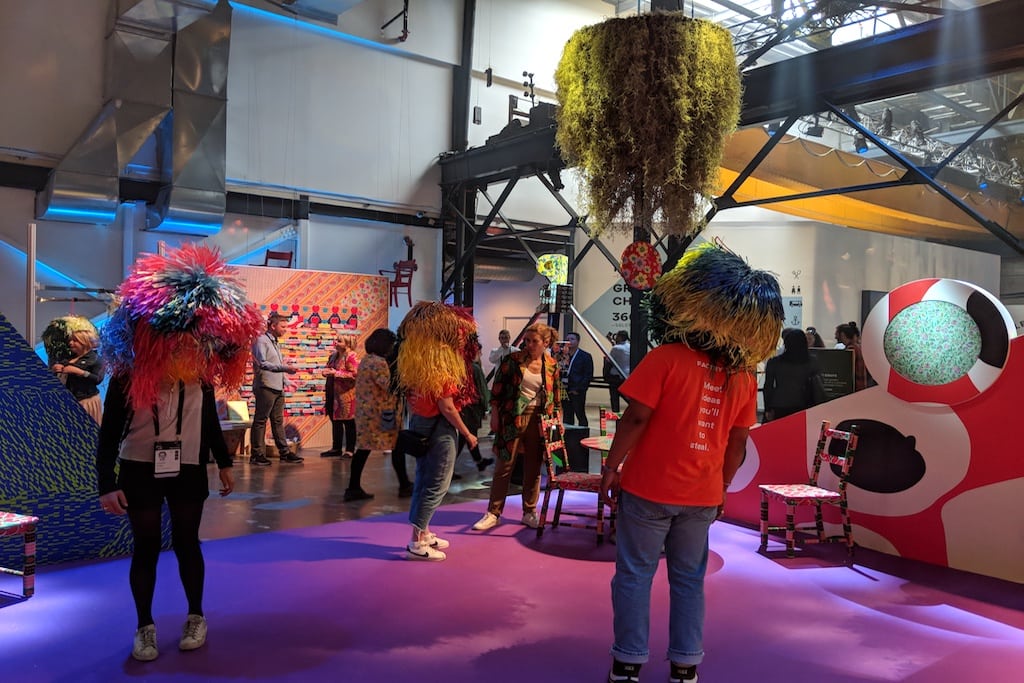CEO Interview: C2 Montreal Evolves With Global Aspirations

Skift Take
C2 may be past the point of reinventing itself as it looks to export its brand of experiential business conferences around the world. Yet, the tweaks it has made to its hallmark event demonstrate the work to scale its interactive festival as its popularity surges.
C2 Montreal, the growing and evolving innovation conference turned carnival, is looking to expand globally while refining the core elements of its design.
Held each year in a modular warehouse south of downtown Montreal, this year's edition of the conference expanded the scope of its sessions and activities to ensure that attendees were able to access as many activities and workshops as possible.
This sort of choose-your-own-adventure event design is a major challenge, and this year's iteration was driven by the realization that there were simply not enough opportunities for attendees to experience every element without waiting on long lines.
As the so-called festivalization of events continues, C2 is looking for ways to export its formula without compromising on the event experience.
"Festivalization is just a new fad for the event world to become more relevant," said Richard St-Pierre, CEO of C2. "Everyone almost at C2 does not have an event background, me first. So, why? Because we wanted to reinvent what a moment in time was. So, if we simply tweak what an event should be, well, you don't get this."
Skift spoke to St-Pierre on the first day of last week's annual C2 Montreal event about the challenges of reinventing the innovation conference, coping with growing pains, and the company's growing global aspirations.
This conversation has been edited for accuracy and length.
Skift: As this conference has grown in recent years, how has your thinking on the variety of programming available changed?
Richard St-Pierre: Well, our intent is not to be bigger, but better. I know it's kind of a stereotype almost, but the whole purpose we have here is to create a dialogue. If you look at all the conferences, trade shows, and stuff, they're all about monologues. There's somebody on stage that spills out their truth of some sort. It might not be wrong, but you have to listen to the oracle, and then you're left on your own to figure out what it means?
So, we don't just strive for that way of thinking. We say the participants are intelligent people. They have a voice, they want it heard, and if they interact with each other, it's gonna change the landscape of how those people actually operate. I always use the
